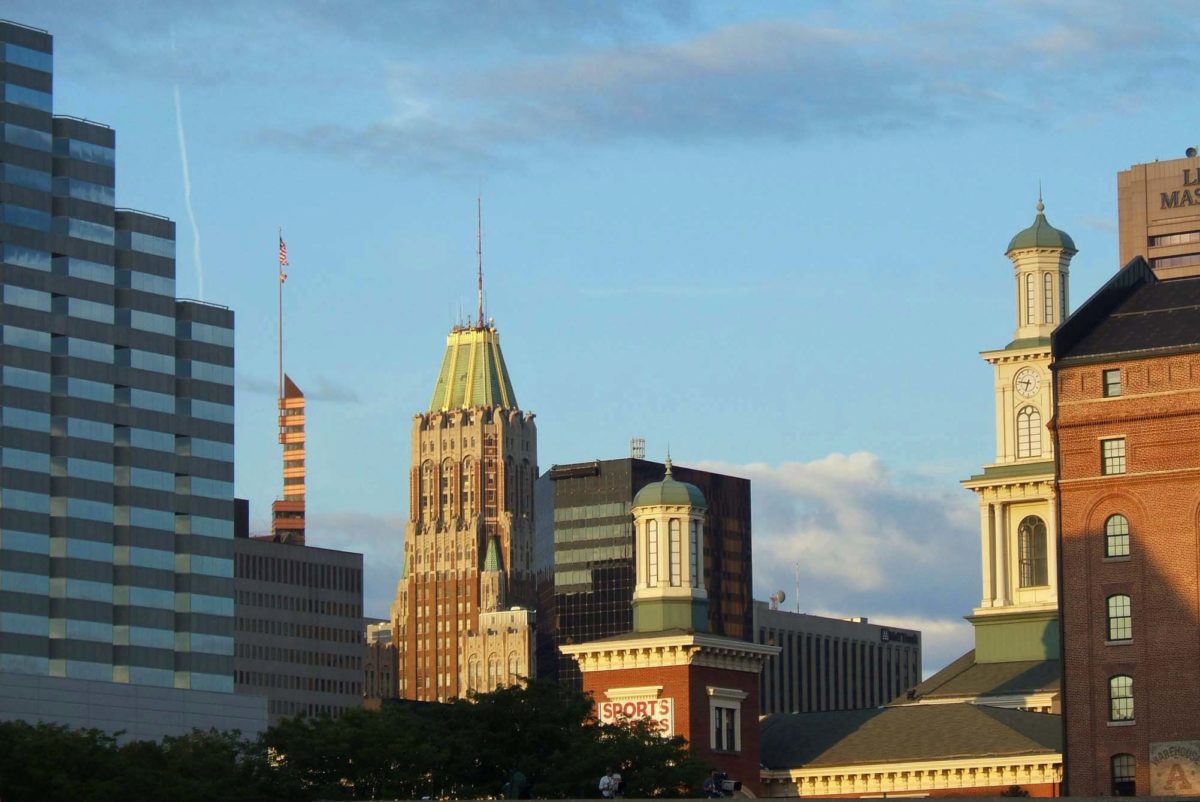With the economic slowdown caused by the COVID-19 pandemic leading to layoffs and uncertainty, small businesses need a lifeline.
That’s brought new aid programs from the highest levels to help a sector that numbers 12,000 businesses and 150,000 employees in Baltimore. But as these brand new programs distribute record amounts of capital, there’s a scramble to be first in the door, and growing calls to ensure that money gets to the neighborhood level.
A pair of programs launching in Baltimore this week are looking to make a direct impact locally:
$10 million for Baltimore small businesses
The City of Baltimore is teaming with prominent New York investment bank Goldman Sachs and tech-enabled Community Development Financial Institution (CDFI) Lendistry on a new program offering $10 million in loans for small businesses and nonprofits in Baltimore.
It’s designed to help underserved businesses that do not have a relationship with a traditional bank get access to funds made available by the federal government in response to the economic slowdown caused by the pandemic.
“It is important that we help our small businesses stabilize, reopen and return to operating at full capacity to get Baltimore City residents back to work and restart our local economy,” Mayor Bernard C. “Jack” Young said on Tuesday.
Goldman Sachs’ 10,000 Small Businesses Program is working with Lendistry through a contribution to CDFIs that is part of its “small business stimulus” program. Through partnership, it is making the loans from U.S. Small Business Administration’s (SBA) Paycheck Protection Program (PPP) available for Baltimore small businesses who apply through Lendistry’s platform.
The PPP, which was part of the federal CARES Act which was passed by Congress, is a $350 billion program that allows banks to offer forgivable loans for businesses to cover two months of payroll and other key expenses. Applications opened on April 3, but not all banks had their lending programs up and running. Since then, there have been warnings that the first-come, first-serve program will run out of funds, leading to further negotiations in Congress to provide more funding. Access to capital has also been part of the conversation.
“One of the things Senator [Ben] Cardin and I proposed on floor of the Senate was to expand the number of PPP funds that go through CDFIs,” U.S. Sen. Chris Van Hollen said on Tuesday. “We want to ensure these funds get to the community level.”
The partnering organizations have prior experience in Baltimore.
Goldman Sachs CEO David Solomon said he last visited the city during the fall, when the latest cohort of the 10,000 Small Businesses program graduated at Morgan State University.
“Unfortunately today these businesses and many others are at risk. When dealing with a crisis of this magnitude, public-private partnerships are critical,” Solomon said at a news conference held via WebEx on Wednesday. “We at Goldman Sachs want to do our part.”
For its part, California-based Lendistry has worked with local organizations such as Baltimore Community Lending, Impact Hub Baltimore and the Neighborhood Impact Investment Fund. CEO Everett Sands said the company planned to make a “big splash” in the city this year, but now it is working in a different way through this program. He called small businesses a “backbone” of the economy.
“We need to make sure that we get through this crisis and they are still here when it’s over,” Sands said. “And we need to make sure no business is overlooked, especially those in low-income areas and those owned by minorities.”
Dominick Davis is among those planning to apply. The art director of DifferentRegard said the Mount Vernon-based men’s and women’s apparel retailer saw its revenue drop to zero amid social distancing orders. It pivoted to making protective equipment for medical workers, including masks and gowns, but there’s still uncertainty.
“We just don’t know what the next 30 days holds,” he said.
Apply hereCrowdfunded relief loans
A separate program, which is also building on recently established roots in the city, is offering small businesses an opportunity to crowdfund loans.
Pittsburgh-based Honeycomb Credit expanded its program to help small businesses raise funds for loans from local customers earlier this year through a partnership with the Maryland Neighborhood Exchange. Already, campaigns to help Loyola Baltipreneurs Accelerator company Stone’s Throw Hash move into frozen meals via ecommerce and The Wine Collective open an urban winery in Union Collective are launched on the platform.
The idea behind the model: help Main Street businesses get working capital by raising money from customers and the local community.
CEO George Cook said that Honeycomb felt “welcomed with open arms” by the city, and is now offering a new relief loan for Baltimore companies that is designed to get capital to small businesses quickly.
“Like everyone else we woke up one morning and realized that the world had changed pretty dramatically, and that that was especially impacting our customers, which are Main Street small businesses, and they were getting hit very, very hard by this changing dynamic,” he said.
The idea is that the loans can serve as a bridge that can allow companies to pay “mission-critical” bills and set them up to relaunch when businesses open back up, Cook said.
The loans are designed to provide $10,000 to $50,000 of working capital, and could get to businesses within two weeks. For the loan, Honeycomb lowered initial interest rates in line with the SBA at 3.75%, and also lowered investor fees. It also has a 45-day period that is payment-free for businesses.
Apply hereJoin our growing Slack community
Join 5,000 tech professionals and entrepreneurs in our community Slack today!
Donate to the Journalism Fund
Your support powers our independent journalism. Unlike most business-media outlets, we don’t have a paywall. Instead, we count on your personal and organizational contributions.

Comcast introduces ultra-low lag Xfinity internet that boosts experiences with Meta, NVIDIA and Valve

Maryland firms score $5M to manufacture everything from soup to nanofiber

This Week in Jobs: Add these 26 tech career opportunities to your vision board


